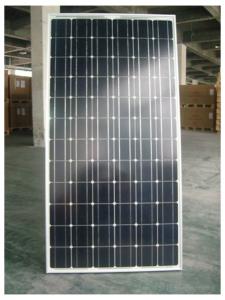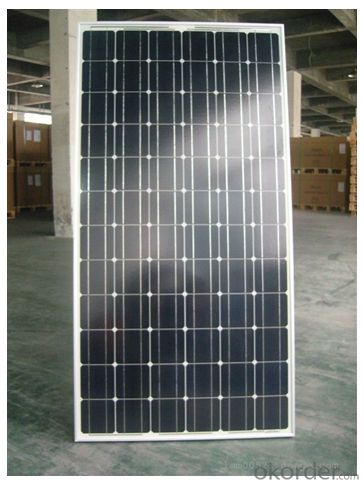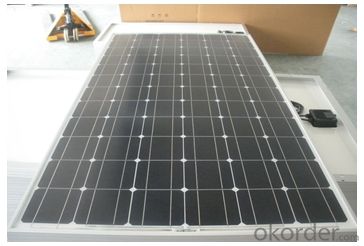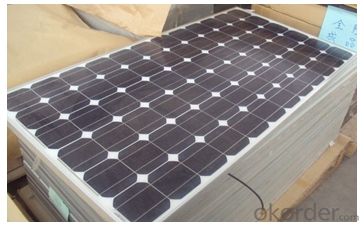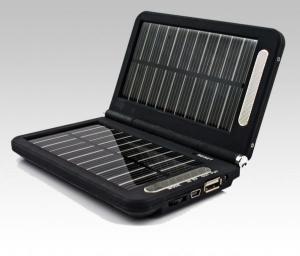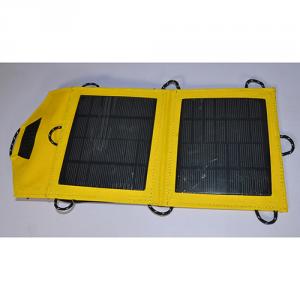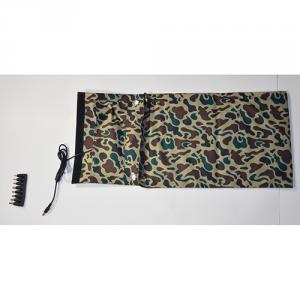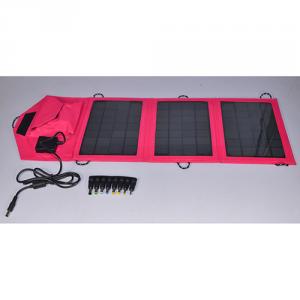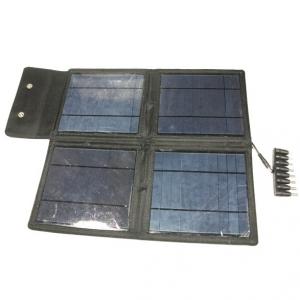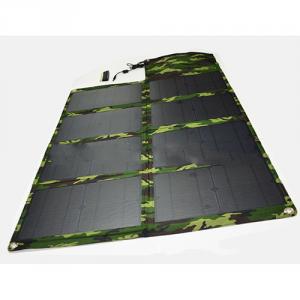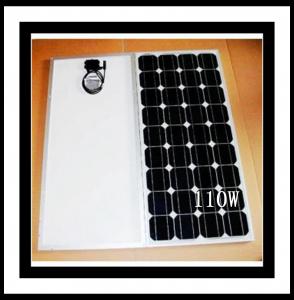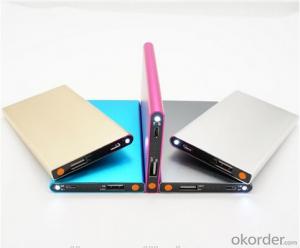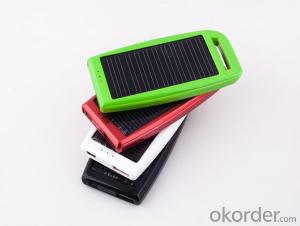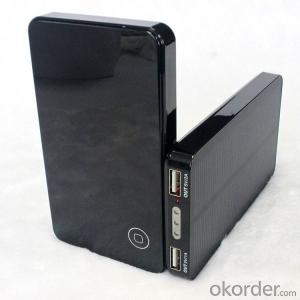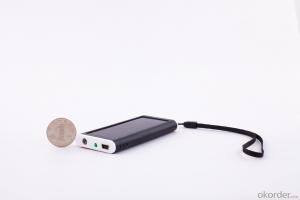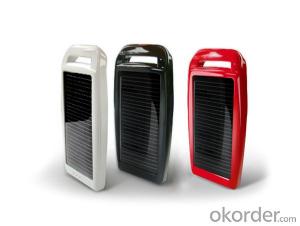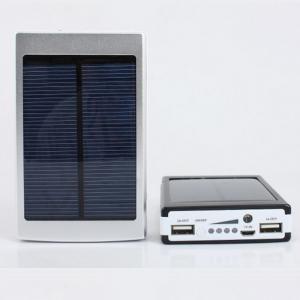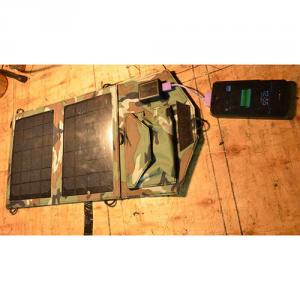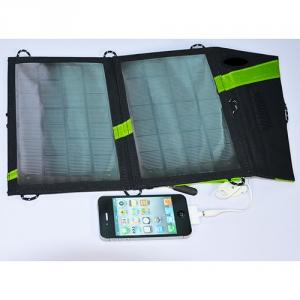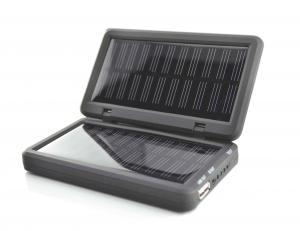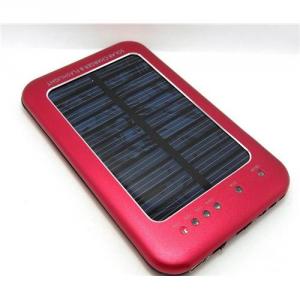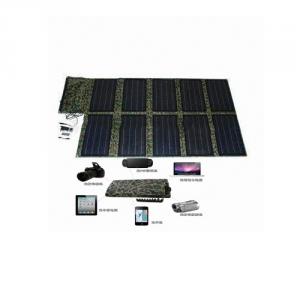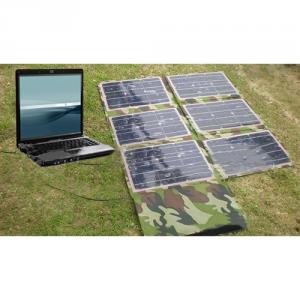Super Mini Portable Solar Power Bank for iPhone, iPod, Samsung, HTC - Solar Chargers for 12V Batteries
- Loading Port:
- China Main Port
- Payment Terms:
- TT or LC
- Min Order Qty:
- -
- Supply Capability:
- -
OKorder Service Pledge
OKorder Financial Service
You Might Also Like
Solar Module Descriptions:
We are one of the well known manufacturers and suppliers of an extensive range of solar module. Entire range of our products is well checked before offering to the clients to ensure that our products are free from any defect. Our products are delivered within the stipulated time frame. These solar module are available for outdoor applications. Our solar module are designed as per the set industry standards and can be bought at market leading Available with us in various dimensions, these modules are stringently tested under define parameters before the final dispatch by our professional who hold rich industry experience in this domain.
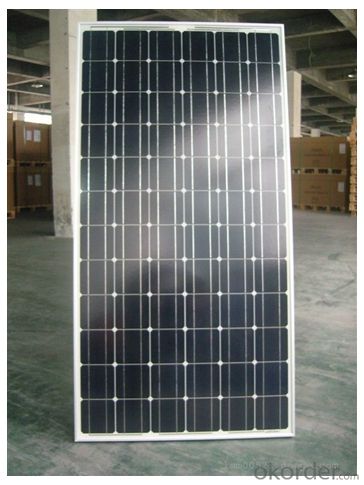
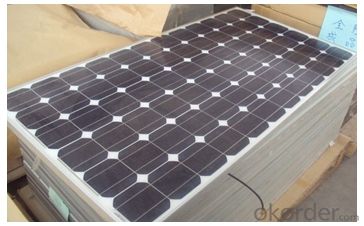
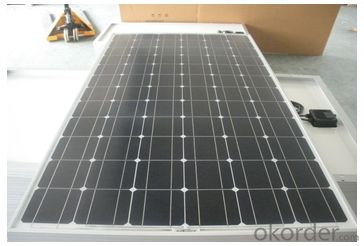
Electrical Characteristics
Module Power (W) | 195> Pm>190 |
Max –Power (W) | 190 |
Max-Power Voltage (V) | 36.5 |
Max-Power Current (A) | 5.2 |
Open-Circuit Voltage (V) | 45.2 |
Short-Circuit Current (A) | 5.6 |
Module Efficiency (%) | 14.9 |
Max-System Voltage (VDC) | 600V(UL)/1000V(IEC) |
Max. Series Fuse (A) | 10 |
Pm Temperature Coefficients (%/℃) | -0.4601 |
Isc Temperature Coefficients (%/℃) | 0.0981 |
Voc Temperature Coefficients (%/℃) | -0.5186 |
NOCT Nominal Operating Cell Temperature (℃) | 45+ 2 |
Maximum load rating ( Pa) | 5400 |
Mechanical Characteristics
Cable type, Diameter and Length | 4mm2, TUV certified, 1000mm |
Type of Connector | Compatible with MC4 plug |
Arrangement of cells | 6*12 |
Cell Size | 125*125 |
Dimension | 1580*808*40 |
Weight | 15.5Kg |
No. of Draining Holes in Frame | 10 |
Glass, Type and Thickness | High Transmission, Low Iron, Tempered Glass 3.2mm |
Features
Guaranteed positive tolerance 0/+5w ensures power output reliability
Strong aluminum frames module can bear snow loads up to 5400Pa and wind loads up to 2400Pa.
Excellent performance under low light environments (mornings evenings and cloudy days)
12 years for product defects in materials and workmanship and 25 years for 80% of warranted minimum power.
Certifications and standards: IEC 61215.
Manufactured according to International Quality and Environment Management System (ISO9001, ISO14100).
FAQ
Q: What kind of loads can I run on PV?
With a correctly designed PV system you can power almost any electrical load. However, as the load size increases the expense also increases. Loads like hot water heaters, air conditioners, room heaters and electric stoves should be avoided. The added cost of trying to power loads like these is very cost prohibitive. If these loads have to be powered it will be a lot less expensive to change the appliance to use an alternative fuel type like propane.
Q: When do I need a charge controller and why?
The safest way to figure out if you need a charge controller is to take Battery Amp Hour Capacity and divide this by the Solar Panel max. power amp rating. If the quotient is above 200, you don't need a controller. If the number is less than 200 than you need a controller.
For example if you have a 100 amp hour battery and a 10 watt panel, you take 100 and divide it by .6 (600mA) and you get 166.6. Since this is less than 200 you need a charge controller. If you have a five-watt panel in the above example you take 100 divided by .3 (300mA) and you come up with 333.3. Since this is larger than 200 you do not need a charge controller. However you still need a blocking diode, to prevent the battery from discharging to the panel at night. So as a general rule of thumb you don't need a charge controller unless you have more than five watts of solar for every 100-amp hours of battery capacity.
Q: What is PV & how does it work?
PV stands for photovoltaic. Photo = Light and Voltaic = Electricity. A solar cell converts light to electricity.
A solar cell is made of silicon. Computer chips are made of this same material. Basically, when light strikes the surface of a solar cell some of it is absorbed into the silicon. This light energy bumps the electrons loose and causes energy to flow.
By packaging approximately 36 solar cells together a solar panel or a solar module is created. When you have more then one solar panels you create a solar array.
- Q: Are solar chargers suitable for camping trips?
- Yes, solar chargers are suitable for camping trips. They provide a convenient and eco-friendly way to charge various devices such as smartphones, cameras, or GPS devices by harnessing the power of the sun. This eliminates the need for traditional electrical outlets, making them perfect for outdoor adventures where access to electricity may be limited or unavailable.
- Q: Can solar chargers be used for charging portable GPS devices?
- Yes, solar chargers can be used for charging portable GPS devices. Solar chargers harness the power of the sun to generate electricity, which can then be used to charge various electronic devices, including portable GPS devices. These chargers are particularly useful for outdoor activities where access to traditional power sources may be limited.
- Q: Do solar chargers work in coastal areas?
- Yes, solar chargers work in coastal areas. They are designed to harness solar energy from the sun's rays and convert it into electricity, regardless of the location. Coastal areas typically receive ample sunlight, making them ideal for solar charging. However, it is worth noting that excessive humidity and saltwater exposure may affect the efficiency and lifespan of the solar charger over time.
- Q: Solar mobile power, you can side of the solar energy directed at the side of the phone to charge it?
- if this time to the phone charge will make the phone exposed to the sun, so charging the phone will be very high temperature.
- Q: How do solar chargers handle power fluctuations during cloudy weather?
- Solar chargers typically rely on a system called Maximum Power Point Tracking (MPPT) technology to handle power fluctuations during cloudy weather. MPPT technology continuously adjusts the charger's output voltage and current to maximize the power output from the solar panels, even in low light conditions. This ensures that the charger can efficiently convert the available solar energy into usable power, compensating for the reduced sunlight during cloudy weather and maintaining a consistent charging performance.
- Q: Do solar chargers require direct sunlight?
- Yes, solar chargers do require direct sunlight to generate electricity.
- Q: Can solar chargers charge electric hair dryers?
- No, solar chargers cannot charge electric hair dryers. Electric hair dryers typically require a high amount of power, which solar chargers are not designed to provide.
- Q: Can solar chargers charge electric air conditioners?
- No, solar chargers cannot directly charge electric air conditioners as they require a significant amount of power to function, which exceeds the capabilities of most solar chargers. Air conditioners typically require a constant supply of electricity from the grid or a dedicated solar power system to operate effectively.
- Q: Can solar chargers be used to charge laptops?
- Yes, solar chargers can be used to charge laptops. However, it is important to consider the wattage and compatibility of the solar charger with the laptop's charging requirements. Additionally, the charging time may be longer compared to traditional power sources.
- Q: Can solar chargers be used for charging portable coffee makers?
- Yes, solar chargers can be used for charging portable coffee makers. Many portable coffee makers operate on low voltage, making them compatible with solar chargers. However, it is important to check the power requirements of your specific coffee maker and the capabilities of the solar charger to ensure compatibility and efficient charging.
Send your message to us
Super Mini Portable Solar Power Bank for iPhone, iPod, Samsung, HTC - Solar Chargers for 12V Batteries
- Loading Port:
- China Main Port
- Payment Terms:
- TT or LC
- Min Order Qty:
- -
- Supply Capability:
- -
OKorder Service Pledge
OKorder Financial Service
Similar products
Hot products
Hot Searches
Related keywords
